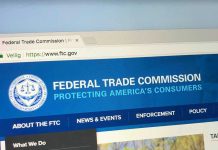
Foreign actors exploited loopholes in America’s regulatory system, enabling a $211 million stock fraud that left Main Street investors holding the bag, exposing ongoing threats to market integrity and national sovereignty.
Story Snapshot
- A Hong Kong businessman was indicted for orchestrating a $211 million securities fraud scheme targeting U.S. investors.
- False SEC filings and social media manipulation were used to promote Chinese stocks on NASDAQ.
- The scheme highlights vulnerabilities in U.S. financial oversight and the dangers of unchecked foreign influence.
- Calls intensify for stricter controls on foreign listings and robust protection for American investors.
Foreign Manipulation Fuels Massive U.S. Stock Fraud
A federal grand jury in Washington, D.C., indicted a Hong Kong businessman for allegedly masterminding a cross-border securities fraud that siphoned $211 million from American investors.
Prosecutors charge that the defendant and his co-conspirators used at least ten shell companies, filing false investment adviser forms with the SEC to give the appearance of legitimacy.
These entities then promoted Chinese NASDAQ-listed stocks through aggressive campaigns on social media and encrypted messaging apps, luring retail investors with misleading information.
As unsuspecting Americans bought in, foreign-controlled brokerage accounts dumped shares at inflated prices, generating enormous profits for the perpetrators while leaving U.S. investors with substantial losses.
This indictment is not an isolated event but the latest in a troubling trend of foreign interference in U.S. markets, particularly from Chinese actors. Over the past decade, waves of Chinese companies have listed on American exchanges, often using shell entities or reverse mergers to skirt oversight.
The SEC has repeatedly warned about “pump-and-dump” and “ramp-and-dump” schemes—manipulative tactics where fraudsters artificially inflate stock prices before selling off their holdings, devastating everyday investors.
The Justice Department and SEC have responded by ramping up cross-border enforcement, but the global nature of these crimes makes prosecution complex and resource-intensive.
Regulatory Gaps and Social Media Manipulation
This fraud exploited significant regulatory weaknesses, including lax vetting of foreign-based investment advisers and shell companies. The conspirators leveraged modern communication tools like WhatsApp and social media platforms to reach a vast audience quickly, amplifying the impact of their deception.
U.S. regulatory agencies, while vocal about their commitment to investor protection, face daunting challenges tracking foreign operatives who use digital tools and jurisdictional loopholes to evade accountability.
The indictment underscores the urgent need for stronger enforcement and more robust due diligence requirements for all entities seeking to operate in U.S. markets.
Many retail investors, seeking the American dream of financial growth, instead faced ruin as their savings evaporated. The erosion of trust in U.S. markets is a direct result of foreign actors exploiting regulatory blind spots and the lack of meaningful oversight.
This case sends a clear signal: America must do more to defend its financial system and protect its citizens from predatory schemes orchestrated abroad.
Calls for Stronger Protections and Conservative Reform
For years, conservatives have warned that globalism and unchecked access to American financial markets would expose families and retirees to unfair risks. The Trump administration’s renewed focus on border security, fair trade, and regulatory reform is now even more vindicated.
Experts and legal analysts agree: international cooperation is critical, but U.S. regulators must prioritize American interests by tightening controls on foreign listings, demanding transparency, and holding all market participants—regardless of nationality—to the highest standards.
With the indictment announced and criminal charges filed, the administration sends a message that the era of foreign actors gaming the system at the expense of American investors is coming to an end.
Short-term, this crackdown may chill foreign listings and spark a shakeup among complicit brokers and gatekeepers.
Long-term, conservatives are pushing for legislative reforms that will close loopholes, enhance vetting of foreign entities, and restore both market confidence and the core constitutional value of protecting Americans from foreign exploitation.
The future of U.S. capital markets—and the retirement security of millions—depends on decisive action to keep America’s financial system safe, sovereign, and strong.
Sources:
SEC’s Newest Task Force Takes Cross-Border Aim | Gibson Dunn
Hong Kong Businessman Indicted for Alleged Role in Ramp-and-Dump Stock Scheme | The Epoch Times
SEC Targeting Cross-Border Fraud: Focus on Chinese Companies and Gatekeepers | White & Case LLP














